Monologues from the field: talks with Don Antonio
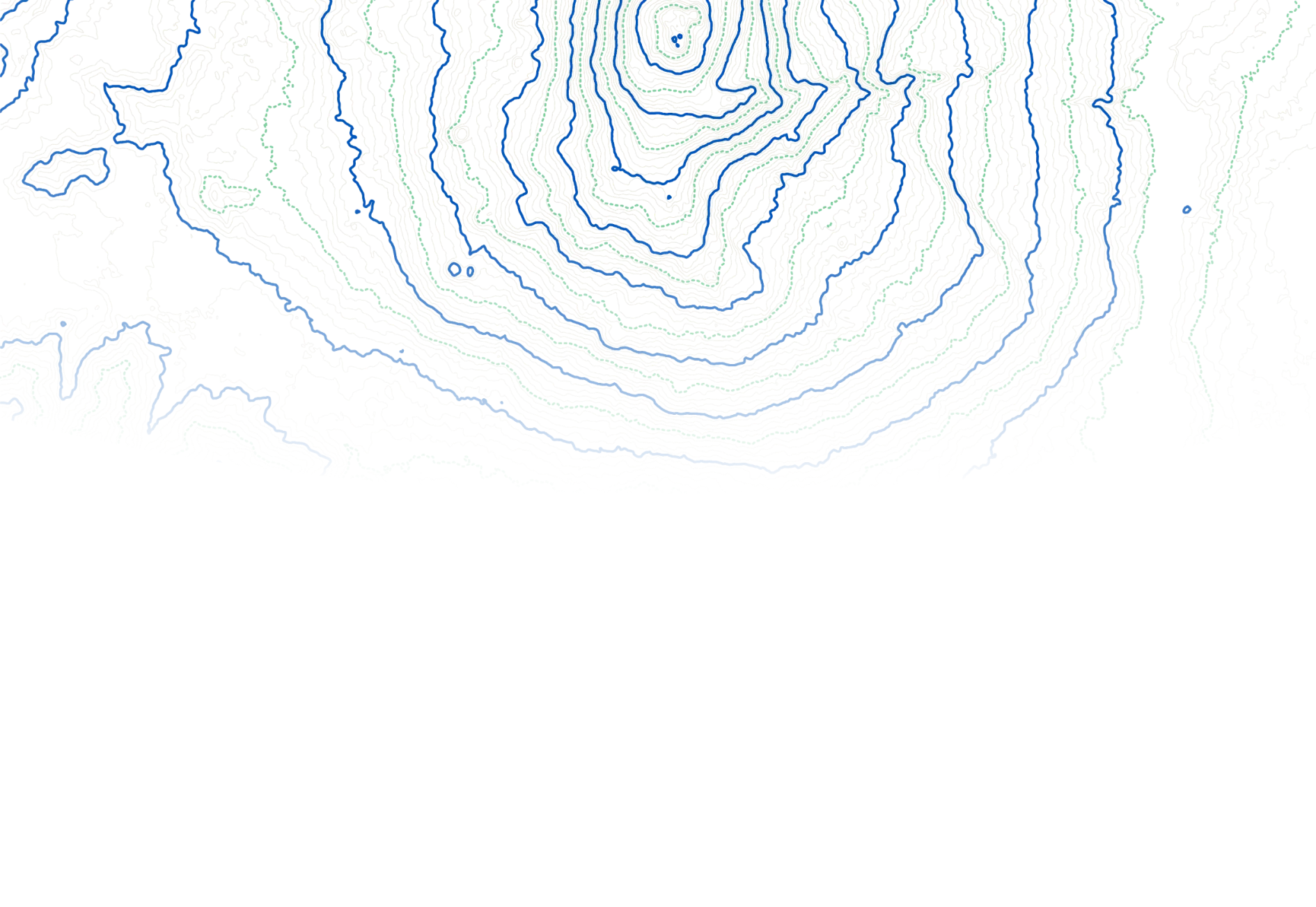

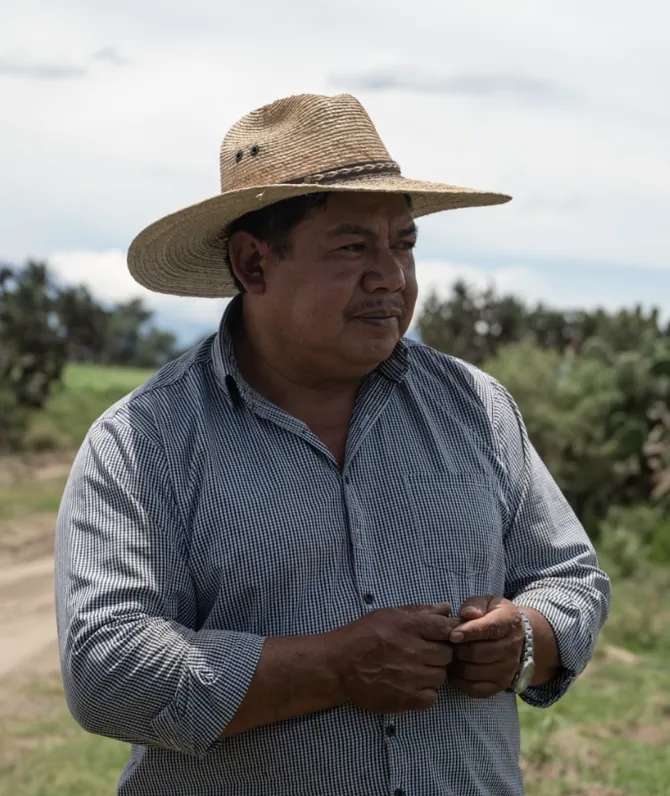
Don Antonio Rodríguez is a farmer and offered part of his plots to implement the pilot of regenerative agriculture in one of our field projects that seeks to sow barley in a sustainable way for the earth and its people, with the future objective that these productive lands sequester carbon, rather than release it. He decided to join the project because the countryside is his life, and he is aware of how conventional agriculture - which for a time was his daily life - is destroying the fertility he once sowed, as well as the economic resources his family lives on. Don Antonio also works in the construction industry, not so much out of pleasure as he will mention later in the text, but because “nobody lives in the countryside anymore”, he tells us.
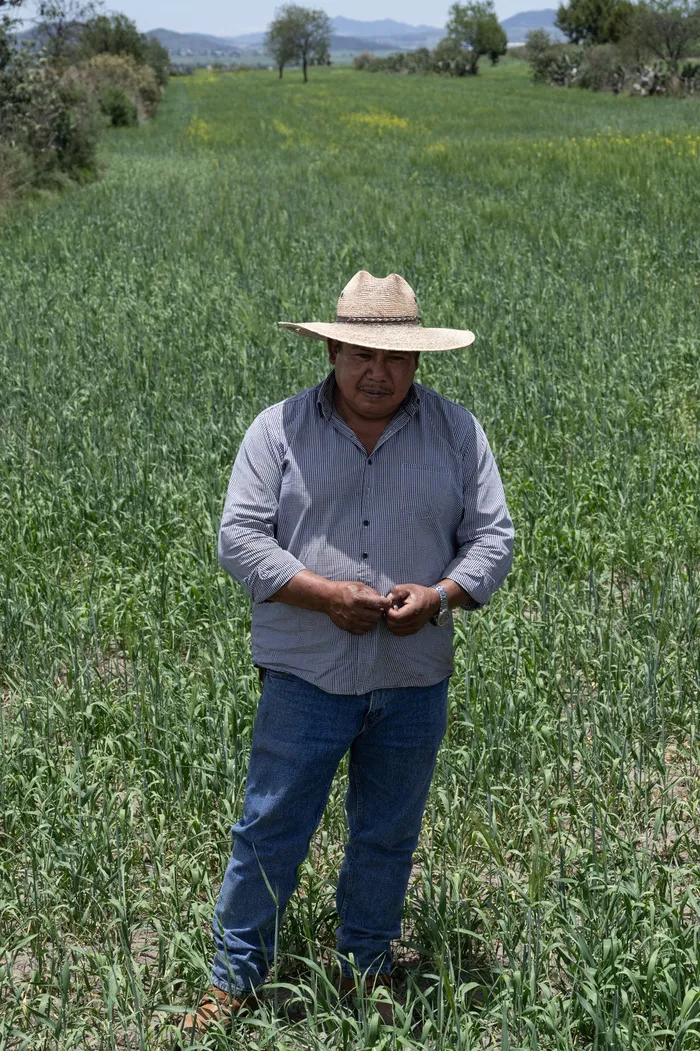
Don Antonio Rodríguez on his barley plot
“We were waiting for it to rain, so the barley was gleaning, but since it hasn't rained, everything was late. The results of the natural products [which have been implemented as part of the pilot project] are not very noticeable because it hasn't rained, but if you look at other plots [without organic products or biofertilizers] they do look smaller. Smaller. Less spike. But I tell him that this new [natural] product does help him, that's why he has more life, like the field is greener. You can tell a difference. It's very important to cultivate in other ways, but still the most important thing is water. The good thing about these organic products is what they do to the bees. My colleagues use chemicals, and well, if their field looks more dead; there are fewer animals. In these lands where I planted before we had a lot of cactus, I think that also helps him, because it leaves nutrients in the soil. When we put compost on it - and that's what we just started putting on it this year - the earth feels softer, even wetter I think. Until more nutrients. If you leave all the straw to be integrated into the soil, that is very good for you, because it's like a cycle, but the real bad thing is that it doesn't rain. If it rained we would be close to harvesting I think. In many years we haven't seen this drought and I think it's partly because of the chemical they put on the earth: this [the regenerative agriculture project] is about not putting so much chemical into it, because if not, we're going to end everything. I'm the only one who doesn't use chemicals. And it shows. Just see the plot next to it. I leave the weed, I don't use chemicals, that little yellow flower feeds the bees, so I decided not to remove it even though they always tell me it's a weed, but what's the point? It grows very little. Believe it or not, if you put herbicide on the weed, that chemical goes all the way down, burns the root and the soil becomes bad. The soil itself [alone, without herbicides] has more nutrients, so barley grows more than the weed naturally, as it doesn't affect it as much. Preventing it from growing is pure pure chemistry. That's why I don't remove it, nor do I move it. It doesn't hurt. From what I understand, with this management [regenerative agriculture] that we're just giving to the earth, The strategy is to strengthen barley so that he can beat the undergrowth.”
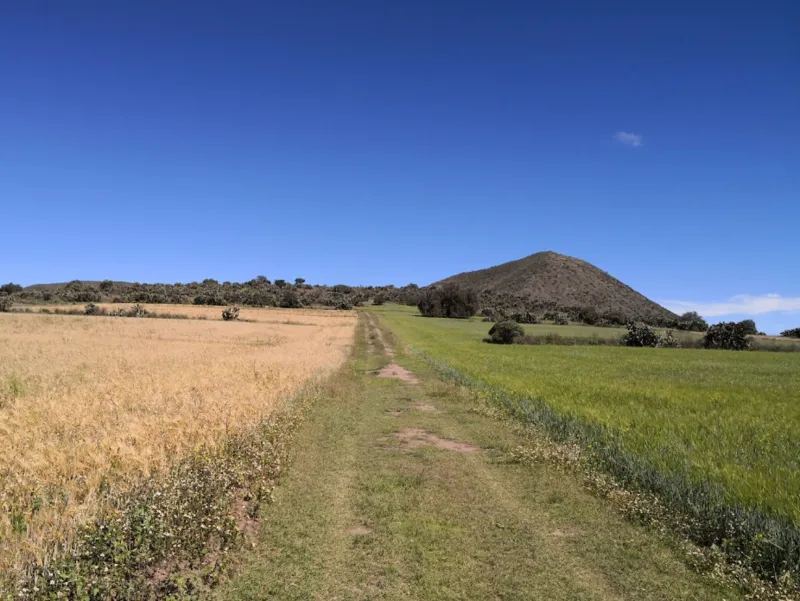
The green plot (right) belongs to Don Antonio, whose management is through regenerative agriculture as part of our pilot project. The dry plot (left) is under conventional agricultural management.
“I decided to join the pilot because it seems to us that it is good for the countryside, we as farmers think that we need to conserve more of the field, the land, but also the economy. Now chemicals are very expensive, they don't come out anymore. Natural fertilizer is much cheaper and therefore gives good results, but the truth is that water does everything. I would recommend going into this [regenerative agriculture] because it's another scenario, The field looks different. We used to go out to work in other states, we went to harvest in Tamaulipas or Hermosillo, but now we don't anymore, because it's already very difficult to live in the countryside. There is no support, what affects us the most is the economy. Now I also work on the construction site, in a union, in days we get screamed up, but my thing is my thing and my thing is the field. If I had a choice, I want the field. It's been my whole life. But then they make us look for another option because if my harvest doesn't come, what do I do? I need to live, I have a family. I enjoy the countryside full of it. When we are planting, the scent of the earth is very rich, very different. When you are planting moisture you can feel it, it's like the song “it smells like wet earth” that's what I like. This is very nice. For us, the best thing is to see him born. Sow one and see it born and all you have to do is say thank you. The field is good, when there is production you can do it. But when there is no production, not even if there is a good price in the market. What affects the most is spending, how much do you invest per hectare with chemicals and machinery? And then there is no harvest, because if the drought, that of climate change, that the land then in the end no longer gives because it is no longer fertile, that the seed without chemicals does not work. You end up investing more than ten thousand pesos in a hectare. The kids don't care about the field anymore, I see it with my children, they don't understand that it's important; they don't understand what the field was before. They don't want to accompany me, nor do they want to study the field with me. This is merely a distraction for them, not a way of life. Already the peasant is, like, nobody.”.
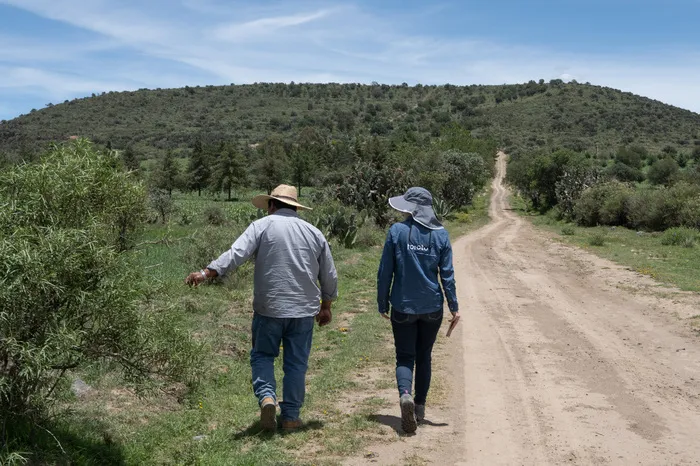
Don Antonio's speech touched us deeply, because beyond talking about his reality, he expressed the daily life of the Mexican peasantry. His entry into our pilot project was a decisive moment: it meant a vote of confidence for the land, for a just and remunerated way of life, for a transition to regenerative ways of relating to nature and for a return of the functional capacities of soils to sequester carbon while being highly productive.
Our undertaking A pilot for regenerative agriculture is located in Apan, Hidalgo, a town that has been dedicated for the last few decades to the cultivation of barley under a conventional agriculture scheme, highly dependent on inorganic chemicals. It is also a semiarid area that has experienced severe droughts in recent years, which has had an impact on the crop yields of owners and land workers, as it is a storm zone. The purpose of promoting regenerative agriculture in the region brings with it several co-benefits. On the one hand, ecosystemically speaking, it improves soil health and capacity to hold water and sequester carbon, thus adding to the global climate objectives that we must address so urgently. In the same way, it promotes crop resilience to climate change, so in addition to being a greenhouse gas mitigation strategy, it is a strategy for adapting to the climate crisis. On the other hand, from a social angle, the project allows land owners and people who work in the fields to receive fair economic compensation, because by not depending on the amount of inorganic chemicals used in conventional agriculture, soil becomes a climate ally, sequestering carbon and making it eligible to develop carbon credits of high quality and integrity.
At Toroto, we have always worked to build a future compatible with all forms of life, so the well-being of the owners of the land and of all those who make agriculture, climate action, the protection and care of ecosystems possible, are our priority.
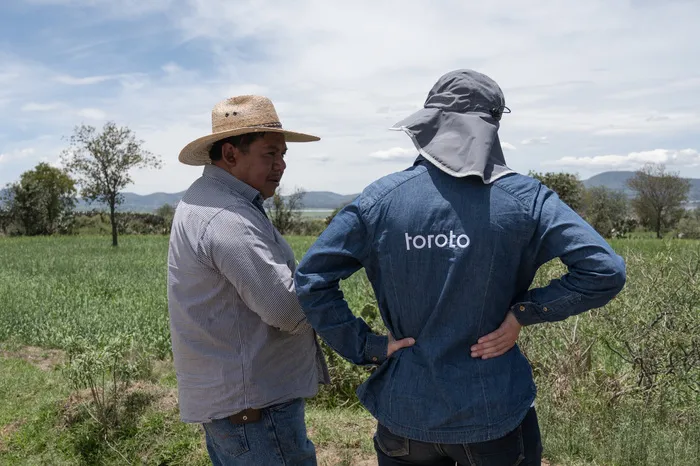
The project remains a pilot for the sake of being implemented regionally, adding knowledge among other farmers and land owners. Betting that those who want to live in the countryside, like Don Antonio, can do so in the fairest and most remunerated way possible; we are betting that soils recover their functional capacities and sequester carbon, mitigating part of the climate crisis; betting on a resilient planet that allows a future for all.
If you are a landowner, a farmer or a company willing to face the climate crisis, write to us.
Explore reflections, research and field learning from our work in ecosystem restoration.